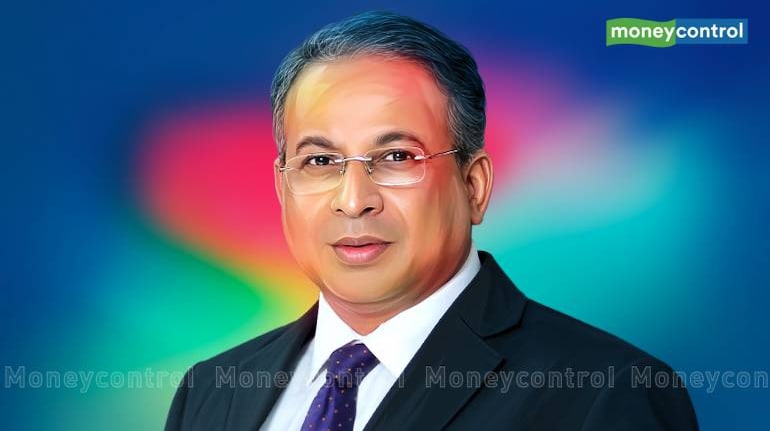



A country that is aspirational is always brimming with opportunities along with the drive to get better, which is why Tata Power Company Limited is bullish on India, according to the firm’s Managing Director (MD) and Chief Executive Officer (CEO), Praveer Sinha. In an interview with Moneycontrol, Sinha said the power sector will play a significant role in India’s goal of becoming a $5 trillion economy, even as he pointed out that challenges such as the high cost of new energy sources and the intermittency of renewable energy will have to be overcome. Edited excerpts:
Tata Power has recorded a net profit for the 15th consecutive quarter. What has been the strategy behind such consistent performance by the company?
In the last few years, we at Tata Power have decided to concentrate on a few growth areas and consolidate our existing operations. This strategy has resulted in better and more consistent performance for the company.
Also, in the first quarter of FY23, we got a huge profit from coal mining operations due to an increase in coal prices, and it was somewhat similar in the subsequent quarter as well. But this year (Q1 FY24), there was no such thing since coal prices rather declined. Yet it did not have any major impact, (there was) only a minor impact on our profit. We find that our existing operations and some of the growth areas where we invested last year and continue to invest this year have done exceedingly well, and they are getting stabilised. I think, that's the interesting part of it — how we are trying to move from some of the non-core profit areas to core profit areas. That is a very strong foundation that we are setting for the company to continue to do well in subsequent quarters.
Energy transition is playing out to be a big theme globally, and countries are now competing with each other on incentives, say for green hydrogen and battery storage. In that context, what should we do to develop these in the country, and what are the challenges that you see?
When we talk about energy transition, we need to look at the power sector in totality. India is focusing on renewable power, which will have to be a mix of solar, wind, hydro, pumped hydro, and battery storage. Then add green hydrogen to that as well. Solar has to work with wind, so that we can come up with hybrid solutions. Solar and wind have to work with hydro or pumped hydro and battery storage for 24x7 electricity. We need to look at solar and wind with hydrogen as well. So, I think each of them has a role to play in India’s energy transition.
Moneycontrol is bringing to you a special series to capture India's rising economic might, as it emerges stronger from the pandemic amid a sluggish world economy. Find out more.
 Bullish on India
Bullish on India
However, this is going to take time. It is not going to happen very quickly. There are challenges in terms of the intermittency of power. There are challenges with cost. We need to figure out ways to bring down the cost of green hydrogen, battery storage, or even pumped hydro projects.
At Tata Power, we are very conscious of our responsibility to take forward each of these initiatives. We will calibrate it in such a way that the end user not only gets the benefit of these technologies but also gets them at an affordable tariff, thereby making them financially viable.
What is the infrastructure opportunity you see in India? And what more needs to be done to boost investment and execution, especially in the energy sector?
There is a lot of policy support coming from the government in terms of various incentives for large utility-scale projects. For setting up those projects, large investments are required, which will come from Indian companies. But we'll also see a lot of foreign capital coming in, either through direct investment or through the financial institutional investors that come over here.
We will also see a large amount of investment coming into technology interventions that are taking place, whether it is in energy storage or in green hydrogen. And then, along with technology, you will have investors who will come and put in capital. So, I think there will be a sea change that you will see in the power sector and also in its associated sectors, especially in the automobile sector. In the transport sector, you will see a large number of electric vehicles (EVs) coming in, and better technologies to support them will keep coming.
Also, the whole ecosystem, whether it is in terms of EV charging or the whole practice of how these facilities are provided to consumers, will get better and better. For example, a seamless experience of driving an EV right across the country or even for inter-city travel is probably not far away.
So, there are great opportunities, and considering that India is one of the fastest-growing economies and there is an aspirational India, which is expecting a lot of improvement in the quality of life, I think, this is the decade of India, and maybe even the next few decades.
Talking about aspirations, India has the aspiration of becoming a $5 trillion economy, and many say that this is within reach and could possibly be achieved sooner than FY27. So in that context, can the Indian power sector, with all its challenges, support this growth of being a $5 trillion economy?
Absolutely. I think, the power sector will play a prominent role in bringing about the required development and changes in India for it to become a $5 trillion economy. India is going to get even better at electricity usage as well as the availability of power.
The Indian power sector has demonstrated time and again that it has the ability to add capacity and cater to the needs of its large population. Whatever the circumstances, even during COVID-19, the power sector performed very well.
India’s power sector has been the silent warrior that ensured the availability of power even when people worked from home. I'm sure the Indian power sector is fully geared up for this challenge.
Are you bullish on India? If yes, why?
Absolutely. I am bullish on India because our country’s demand is quite high. The per capita consumption in India is still very low, much lower than the world average and that of developed countries. So, I think there is a great opportunity here to leapfrog technology. We can actually now use renewable power, some of the smart grid technologies, and thereby use power in a much more efficient and cleaner way than what was done earlier.
Certain government rules, such as the emergency clause - Section 11 of the Electricity Act – and the order for mandatory blending of imported coal in domestic thermal power plants, have been in place for the longest duration ever. What is your assessment of its impact on the power tariffs of consumers?
Section 11 directs the generating companies to generate power on the condition that the tariff will be determined and will be cost-reflective by the respective regulator. In our case, too, that has been done. And that is as per the Electricity Act itself. While in the initial period, the cost of coal was very high and the tariffs were a little bit on the higher side, we have seen in the last few months that the cost of coal has come down. And to that extent, the tariff has also come down for consumers.
We expect that with the constant reduction in coal prices, we will continue to pass on the benefit of lower prices to the consumer. And this is a good reference point for any subsequent arrangement or agreement that needs to be signed.
Tata Power recently got its power tariffs reduced in Mumbai, which the APTEL said was a rare thing for a discom to do. Has the competition now become so stiff in the power sector that Tata Power has had to resort to such a move?
There were certain aspects that were not considered by the state power regulator while determining the tariffs, and we appealed that those be considered so that the benefit of lower costs gets passed on to the consumer. Whatever we did was in the consumers' interest and to ensure that not only reliable power is there, but affordable and economical power is also provided to the consumers.
Last time, you told Moneycontrol about Tata Power’s plan to use its existing hydel projects for setting up pumped hydro storage projects. Now, I believe the company has signed a 2,800 MW MoU with the Maharashtra government for pumped hydro projects. Give us more details, and if you have similar plans in some other states.
We have signed a 2,800 MW agreement, which is for setting up pumped hydro storage projects at two locations. Right now, since we have the existing reservoirs, plants, and dams, we believe that our cost of production will be much lower than if we had gone for a greenfield project. Secondly, the construction period will be much faster because the land and other aspects of the infrastructure are already available at the two sites.
Hence, right now we are concentrating on setting up the 2.8 GW of pumped hydro projects only. Once we have completed them, we will examine other projects. But to be sure, we are right now using only two of our reservoirs. We have six of them, and to that extent, we have a much larger opportunity to develop and enhance pumped hydro storage capacity.
Discover the latest Business News, Sensex, and Nifty updates. Obtain Personal Finance insights, tax queries, and expert opinions on Moneycontrol or download the Moneycontrol App to stay updated!
Find the best of Al News in one place, specially curated for you every weekend.
Stay on top of the latest tech trends and biggest startup news.